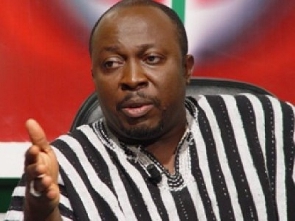The Center for Democratic Governance (CDC) recently concluded its study of voting patterns in Ghana—and of some of the major reasons undergirding these patterns—on which a number of web portals has reported:
“Pieces of cloth, cutlasses, bags of rice, cooking oil and the like, are some of the items often distributed to destitute and sometimes uneducated voters.”
It is not as though we had expected anything different from the obvious in the open psychology of the voting patterns of the electorate.
Of course, what does one expect in a society where paralyzing systems of superstition, mass poverty and illiteracy, “create, loot and share” political capitalism (“crapitalism”), public corruption and impunity, unthinking religionism, and extreme partisan politics reign supreme?
The poor states of the educational system and the national economy, since the dawn of the Fourth Republic, have constituted massive underhanded projects which the ruling class, a dangerous clade of political animals without vision but with a stinking faculty in a potential state of rigors mortis, vigorously pursued in order to perpetuate its kleptomaniacal purchase on power.
Put it in another way; creating conditions that drive a people into a perpetual villeinage of mass illiteracy and poverty-surely serves the strategic objectives of an unpatriotic ruling class in a number of important ways, including but certainly not restricted to, making an artificially-created “ignorant” class of citizens think it owes its very existence to the philanthropic paternalism of that ruling class whose primary source of philanthropic paternalism is, itself, unmistakably kleptomania.
And it is not as if illiteracy is an exclusive bug of the “uneducated”—for it is however the way one looks at it.
Even the so-called “educated class” cannot excuse itself from this mordacious pandemia of abject ignorance of patriotic technocracy, of pragmatic, rational politics.
The kinds of leaders we have had in the Fourth Republic constitute a remarkable case study of this strange phenomenon of political dilemma.
Surely, the poverty of ideas we see in the ruling class speaks to this. The veil of ignorance in the ruling class is infectious indeed—as well.
Neither can anyone usefully describe the ruling class as “astute.”
Our ruling class of political Luddites does not deserve this negative characterization or label.
Members of this slothful clade of political animals who are true to themselves will tell you they do not deserve any of such titular accolades.
But illiteracy and poverty do not necessarily make people stupid and dumb, and yet both can necessarily make people seem hopeless and helpless, even vulnerable to the insidious dictates of political manipulation.
In this way, some sell their conscience to the highest bidder so as to survive the stinging pangs of biological imperatives and social expectations—belongingness.
For the poor, at least, keeping body and soul together in a Diopian material-spiritual balance comes with a prohibitive price which privation cannot afford to pay.
Politicians know this and take full advantage of it for purely personal and partisan gain.
Yet these same politicians send their children, spouses, family members…to some of the best schools (and hospitals) outside the country, to the West particularly, while totally ignoring the needs of their local counterparts in the country.
A gradually dying society such as Ghana will never have its “democracy” thrive for long where mass illiteracy and poverty reign supreme in the body politic.
In this environment of paralyzing paradoxes, citizens are more likely to vote for political candidates who can give them a fleeting respite from the pangs of privation.
Strategic and tactical issues-based politicking is of no, or little consequence to such voting blocs—especially those whose nagging stomach rumbles give them bouts of sleepless nights.
Elsewhere some media portals have also noted:
“84 percent of Ghanaian voters make their choices during election based on how they can directly benefit from a particular candidate…The report said Ghanaians are not necessarily bothered about the ability of the candidates to attract development projects to the constituencies…
In Ghana, what has become known as vote-buying is very common in national and internal party elections.”
Evidently there is nothing new that this study reveals.
On the other hand, and naturally, we had expected to see a larger ratio that the 84 percent the study presents—in the upper 90s, say.
But vote-buying is actually a normative feature of the Fourth Republic, as well as of many if not most democracies from around the world.
Suffice to say that we will not get into any methodological hypothesis here, although we also have to admit that it is only probably the case that, the methodology of vote-buying does vary and therefore-even assumes different political colors and applications and perception as one cautiously moves seamlessly from one geopolitical democracy to the other.
Clientelism therefore becomes a natural causation or consequence of vote-buying.
Thus, some persons go ahead to abuse clientelism and the social contract on their way to the seats of political power and the corridors of power.
These processes underline the so-called “politics of the belly.”
The “politics of the belly” engulfs the entire nation, Ghana, in a frigid conflagration of political, social and moral inaction as society grudgingly deteriorates for lack of political vision and collective action—not political plans.
The CDC concludes:
“Due to extreme poverty and other factors, some voters are willing to trade their future and that of the country for paltry sums and items both perishable and non-perishable.”
Here the elective conscience behaves much the same way as the judicial conscience, the latter caught on Anas Aremeyaw Anas’ investigation cameras!
We await the evidence of his cameras’ eye on parliamentary corruption.
Public corruption has assumed a state of paralyzing metastasis in the Ghanaian body politic.
And yes, Ghana too has what controversial Nigerian lawyer and politician Tunji Braithwaite, late, called “rats, cockroaches and mosquitoes” as in the following famous line attributed to him:
“I will kill all the rats, cockroaches and mosquitoes.”
Of course, he was directly referring to those unconscionable khakistocratic murderers and kleptocrats.
THE ROLE OF THE GHANAIAN MEDIA
This is where journalism and media come in, unfortunately, the obsequious Ghanaian media, an uncritical mouthpiece of the private and public sectors is not helping matters—either.
It appears that we may have taken mass media/communication, freedom of speech and press freedom in general to an absurd height of social-political and moral inaction, admittedly part of the symptom-complex of our duopolistic idiocy, extreme partisan politics—the Machiavellian art of polarizing rhetoric and of the winner-takes-all kleptomaniacal politicking—that is.
As a matter of fact, the elite media, including those of the state are nothing but agitprop instruments in the hands of unpatriotic citizens.
With the monarchical rule of mass poverty and illiteracy defining the public landscape, it is not surprising that there is no critical mass of critical readership whose response and contributions to political discourse on the national interest and the public trust is expectedly typical of a groveling choir whose members are more than infatuated with their singsongy partisan choirmaster’s terpsichorean rhetoric—preaching to the choir.
In the long run, the media rather than being a vigilant watchdog becomes a drooling poodle.
The end result is the churning out of low-quality caliber politicians and leaders whose psychological stomachs do most of their thinking on their behalf and that of the nation-state and its citizens—stomach politics—and of a highly brainwashed, gullible citizenry.
The brainwashed, gullible citizen becomes the demagogue’s dream—in other words.
Perhaps, the greater irony is that the “highly” educated technocrat is just as brainwashed and gullible as the brainwashed, gullible uneducated citizen - as he cannot break free from his tightening prison of Eurocentric-induced ideological, cultural and intellectual coma; a psychological de-centeredness that denies the average African transformative moments of innovative, critical, analytic thinking.
CONCLUDING THOUGHTS
The point here is that when poverty is radically reduced across the board, when ignorance and illiteracy are significantly reduced through mass quality education, when political ethnocentrism and extreme partisan politics become a thing of the past, when the general living conditions of a people are improved, and when citizen democracy holds the feet of politicians to the fire about high quality caliber and responsible leadership—everyone in the body politic potentially benefits.
There is no doubt that Ghanaian journalism can contribute to this meaningful aspects of political discourse.
Regrettably, Ghanaian journalism in particular and the media in general are full of muckraking gossips, mudslinging politics…with their paid useful village and useful idiots, serial callers, shills…
Ghanaian journalism, by and large, has no touch of academic seriousness and investigative quality largely required to promotes bourgeois nationalism rather than civic or liberal nationalism. Quantity overtakes quality in the popular imagination as far as media communications goes.
Thus, Ghanaian journalism is a stunted growth on a body politic of moral dumbness and deafness.
It contributes to the country’s slothful democracy while the nation’s leaders shortchange them—the brainwashed, gullible citizens—through carefully orchestrated schemes of bribery, goodies, and extravagant electioneering promises.
Politicians rape the national coffers with reckless abandon, in which case they keep the bulk of the booties for themselves and crumbs for their foot soldiers, mostly the electorate.
Yet these brainwashed, gullible citizens do not even know the crumbs and the bulk of the booties the politician openly keeps for himself, his family and friends are actually theirs—their collective future!
Having said that, Ghanaians may think they are enjoying all these flowery Magna Carta-imported “freedoms” but, perhaps, unbeknownst to them, they are rather under a heavy cloud of freedom deficit of the kind imposed on them by themselves, “ignorant” politicians and technocrats—and as far as we are concerned, the latter two are not interested in the high politics of the nation-state and in intellectually and technocratically bankrolling the power dynamics of comparative advantage to push the country forward.
In the final analysis, it becomes painfully real that the politician thinks with his stomach and the electorate votes with his stomach!
It maybe why we have thinking Kwashiorkors all over the place!
And no wonder Nana Yaa Boaponsem, Queen Mother of Anyinam in the Western Region, has advised her subjects to “chop” the money politicians shower on them and to still vote them out at the polls.
This is not a bad idea after all! Ghanaians should consider this advice particularly in connection with those two major political parties; the NDC and the NPP, as they go to the polls.
Osagyefo Dr. Kwame Nkrumah should be turning in his grave.
REFERENCES
Ghanaweb. “84% Of Ghanaians Vote For Personal Goodies.” May 24, 2016.
Ghanaweb. “‘Chop’ Their Money & Vote Them Out—Queen Mother.” May 24, 2016.
Tobi Soniyi, Shola Oyeyipo, & Onyebuchi Ezigbo. “Nigerians Mourn Passing Of Fiery Lawyer, Activist And Presidential Hopeful, Tunji Braithwaite.” March 29, 2016.
Opinions of Monday, 30 May 2016
Columnist: Kwarteng, Francis














